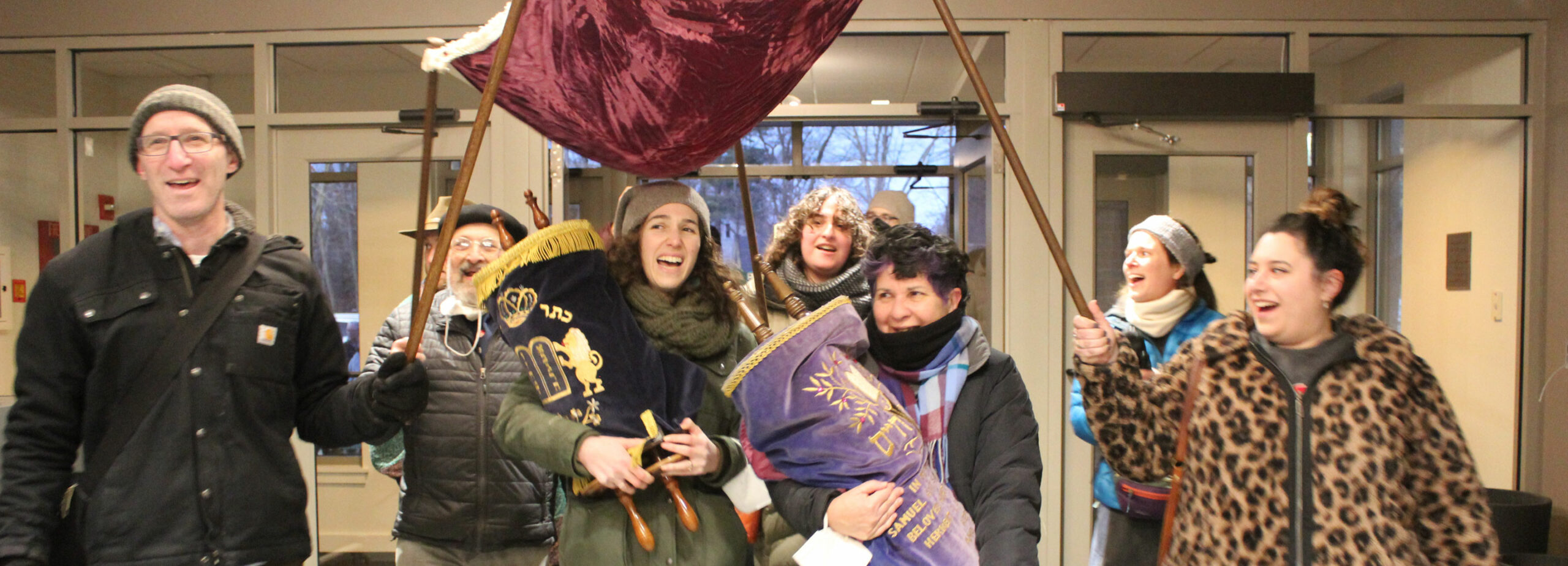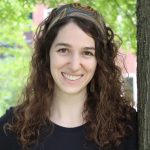Faculty Faculty Spotlight:
Rabbi Shani Rosenbaum`21

Q. What do you like best about teaching at Hebrew College and particularly teaching rabbinical students?
It’s a huge gift to teach adults who want to learn, and who are willing to do the work to access the words of their ancestors in the original language. The students here have a yearning for Torah, which is really special. And because of our explicit pluralism, people are drawn to Hebrew College from a really wide range of backgrounds, which means I could teach the same material to a different group of students each year and what emerges in the encounter is always new, rich, sweet and surprising.
Q. How have Hebrew College students inspired you?
It’s hard to emphasize enough how profoundly countercultural, and difficult it is to learn a language that is not your “mother tongue” well enough to be immersed in ancient texts that speak that language all day. Some of our students grew up with educational opportunities that helped them to develop strong Hebrew fluency, but many didn’t, and learning a language as an adult is extremely hard. You have to really long for a depth of relationship with our tradition to work as hard as our students work. And that longing and that devotion is profoundly inspiring to me.
Q. What is your specialty and why did you choose it?
I was drawn to rabbinic literature—particularly Talmud and Midrash—from a pretty young age: I think I was enthralled with the rabbinic imagination, and I was also captivated by the feeling of unspooling a Talmudic passage, of the particular muscles it grew in my brain and also the way it changed how I see the world. I think Talmud reshapes and rewires us; some of that rewiring manifests in funny, neurotic ways (think: Larry David) but it also grows our capacity to see multiple angles of a given issue, empathize across lines of difference while still leaving space for passion and strong and unapologetic opinions. As a teenager (and particularly, as a young woman) I felt I was constantly being asked to choose if I was a “head” person or a “heart” person. I wanted to think, and I wanted to feel, and Talmud gave me a home where I could do and be all of that at once.
Q. What is a text you love to teach and why?
I love teaching halakha, because it’s one of those disciplines where you can watch a conversation unfold over centuries. In my own experience as a learner, as I’ve grown in my familiarity with the world of halakhic literature, I’ve had the sensation of pulling up a chair to a table around which my ancestors sit, and beginning to find a voice there. That feeling is what drew me to rabbinical school in the first place. Accompanying my students as they get oriented in this unfolding conversation, and seek to find their own places within it, is among the most precious things I get to do as a teacher.
Q. What is a text you love that is unrelated to teaching rabbinical students?
Outside of school I mostly read fiction and poetry. My mom is a librarian, so novels are my comfort food. The best book I’ve read this year so far is Zadie Smith’s The Fraud, and I’m currently savoring Erika Meitner’s poetry collection Holy Moly Carry Me.
Q. Outside of teaching, what is something you love about Judaism?
Once the lights suddenly went out in my apartment, and my roommate at the time and I each emerged from our rooms with a flashlight. As we went from room to room searching for the fuse box in the dark, she looked at me with a raised eyebrow and said, “bedikat chametz, am I right?”
It was a silly moment, but I think about it a lot—the same sort of phenomenon named by Yehuda Amichai in his collection Open Closed Open, where he describes the feeling of wrapping yourself in a towel at the beach and remembering what it feels like to put on a tallit. Our tradition has this way of seeping under our skin in this way; it lives in our bodies, and it changes what and how we see.
Q. A rabbinical school teacher can play multiple roles. How would you describe your role in 3-4 words?
Rabbinical school teacher as bridge-builder.

Explore Graduate Programs Tamid Adult Learning Classes Support Our Work

